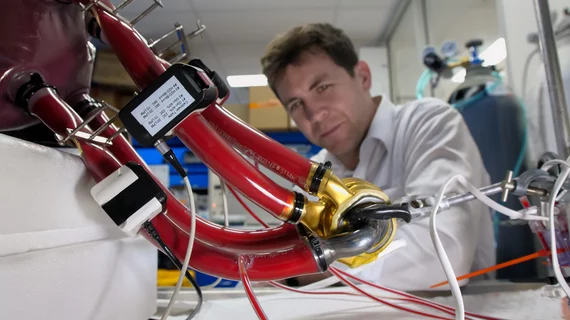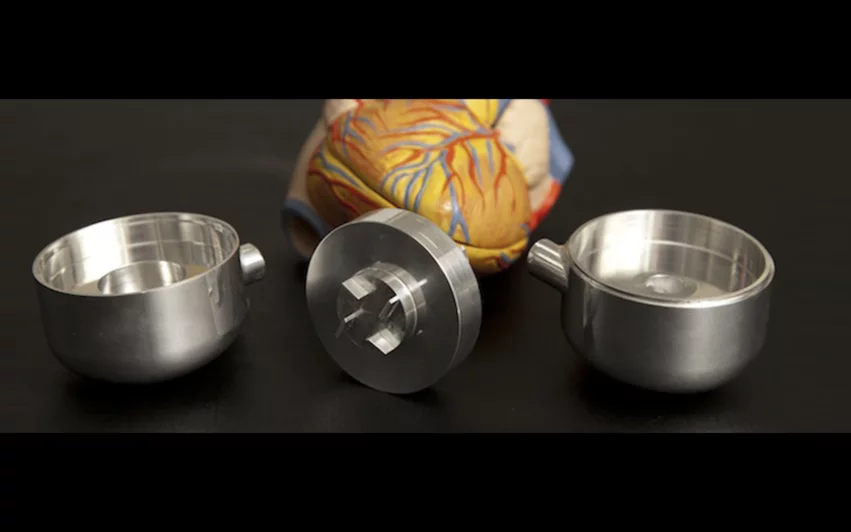Texas surgeons first in world to perform ‘groundbreaking’ total artificial heart procedure
Surgeons in Houston have performed the world’s first successful human implant of BiVACOR’s Total Artificial Heart (TAH) technology. The procedure was completed July 9, 2024, at The Texas Heart Institute at Baylor St. Luke’s Medical Center. It was part of an early feasibility study (EFS) first approved by the U.S. Food and Drug Administration (FDA) in December 2023.
BiVACOR’s TAH was designed to serve as a bridge to transplant in patients with end-stage heart failure. Based on rotary blood pump technology, it is made of titanium and approximately the size of an adult’s fist. The TAH has no valves or flexing ventricle chambers, and its only moving part is a magnetically suspended double-sided centrifugal pump impeller.
“The Texas Heart Institute is enthused about the groundbreaking first implantation of BiVACOR’s TAH,” Joseph Rogers, MD, president and CEO of The Texas Heart Institute as well as the study’s national principal investigator, said in a statement. “With heart failure remaining a leading cause of mortality globally, the BiVACOR TAH offers a beacon of hope for countless patients awaiting a heart transplant. We are proud to be at the forefront of this medical breakthrough, working alongside the dedicated teams at BiVACOR, Baylor College of Medicine, and Baylor St. Luke’s Medical Center to transform the future of heart failure therapy for this vulnerable population.”
“I’m incredibly proud to witness the successful first-in-human implant of our TAH,” added BiVACOR founder and chief technology officer Daniel Timms, PhD. “This achievement would not have been possible without the courage of our first patient and their family, the dedication of our team, and our expert collaborators at The Texas Heart Institute … I look forward to continuing the next phase of our clinical trial.”
An additional four patients are now scheduled to undergo the procedure as part of the FDA EFS study.
Timms has a long history working with The Texas Heart Institute. In fact the Houston-based facility has an equity ownership interest in BiVACOR.


